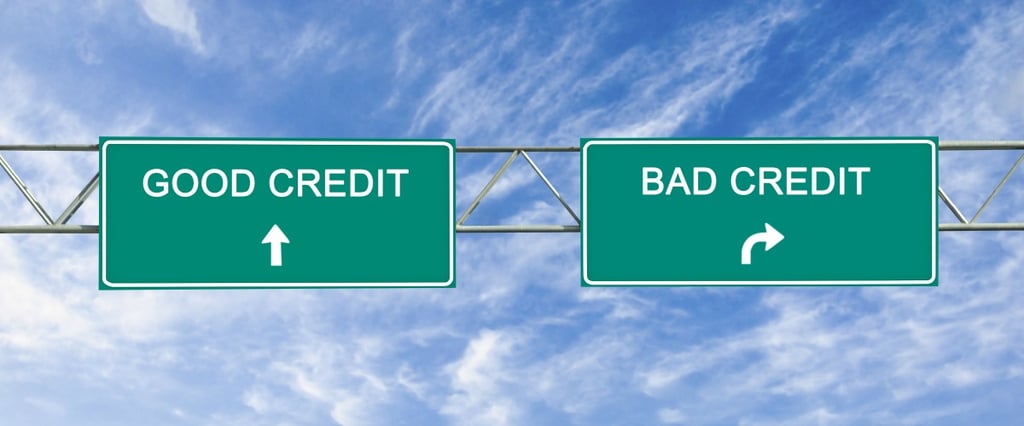 More than ever, your credit needs to be top-notch to get the best terms, the best rate and the best offers on your mortgage. What does that mean if you have bruised or bad credit?
More than ever, your credit needs to be top-notch to get the best terms, the best rate and the best offers on your mortgage. What does that mean if you have bruised or bad credit?
The Canada Mortgage and Housing Corporation (CMHC), the federal government's authority on housing and one of the country's mortgage insurers, has found that in 2017 over 80% of mortgage holders have a very good or excellent credit score. This share is up by 1% from a year ago, while the number of mortgages held by people with a fair or poor score is down by 1%. What this means in practical terms is that most mortgages in Canada are held by people with a credit score of 700 or better, and the number of homeowners with good credit is increasing.
Does this mean your dreams of owning a home are gone if you have a bad credit score? Not necessarily!
While there are more challenges in getting financing if you've got a low credit score or bruised credit, once we know your situation our team can help you determine your options.
Your Credit History Matters
There's more to your credit than just a number. Your Beacon score is a numerical value of all your credit habits, but it doesn't necessarily tell the whole story. Depending on your situation, a lender may also consider:
- The Number of Lines on Your Credit Report
Your credit report builds over time, so if you're newer to using credit you'll probably have fewer trade lines showing on your report. This isn't necessarily a bad thing, but fewer lines does mean that there's less history to evaluate. At the same time, a lot of recently opened trade lines won't always help, as they also won't show how you manage credit over time. - The Types of Credit You Have
There are several types of credit you may have: a fixed loan (e.g., car loan), revolving credit (a credit card or a bank line of credit), or a service like a cell phone that could all form your credit report. Each type of credit can be considered differently in showing your financial habits. - How Much Credit You Use
The ratio of how much credit you use versus how much you have available can be a good indicator of how you approach debt. Having credit cards that are consistently near their limit – or maxed out – could be a warning sign to a lender. A good rule of thumb is to use about 30% of your available revolving credit at any given time. - Your Payment History
Are you making payments on time? When was your last late payment? Showing that you are responsible in following a payment schedule can help demonstrate that you would take the same care with a mortgage. - The Number and Frequency of Inquiries About Your Credit
In this case, we're talking about "hard inquiries" that would take place if you were actively looking for new credit and had consented to have your credit checked in support of that application. If your credit report has been pulled frequently, it could be an indication of higher risk to a lender.
Final thoughts
If you're committed to improving your credit score, we are willing to work with you to find a mortgage solution. If your credit isn't where it needs to be right now, you can still start on the path to rebuild your credit and get yourself into a better situation to be able to buy a home in the future.
If you're concerned about your credit and want to buy a home, contact Auxilium Mortgage today for a free consultation with one of our brokers: call Toll-Free 1-855-590-6520 or visit us at 307 Goldstream Avenue during regular business hours, Monday through Friday 8:30 a.m. – 5:00 p.m. We can also arrange an appointment evenings or weekends to work with you.
Auxilium Mortgage Corporation is based in Victoria, BC and works with clients locally and across Canada. The Auxilium team has over 100 years of combined financial experience and access to dozens of lenders to help you meet your goals.



